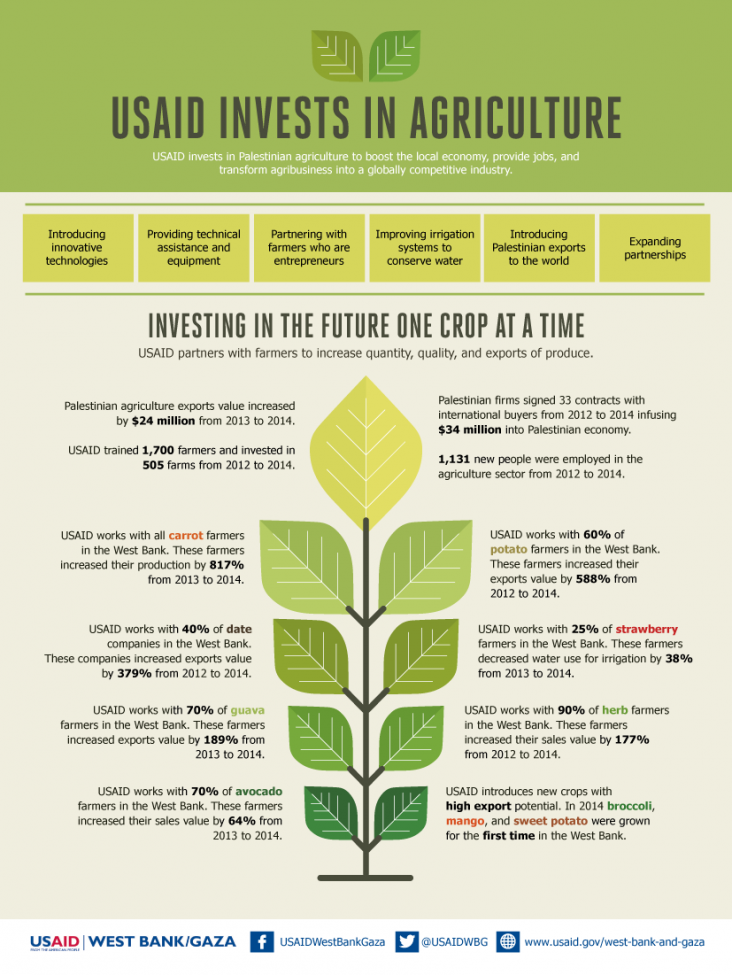
USAID invests in Palestinian agriculture to boost the local economy, provide jobs, and transform agribusiness into a globally competitive industry.
|
Introducing innovative technologies
|
Providing technical assistance and equipment
|
Partnering with farmers who are entrepreneurs
|
Improving irrigation systems to conserve water | Introducing Palestinian exports to the world | Expanding partnerships |
INVESTING IN THE FUTURE ONE CROP AT A TIME
USAID INVESTS IN AGRICULTURE ![]() (pdf - 150k)
(pdf - 150k)
USAID partners with farmers to increase quantity, quality, and exports of produce.
- Palestinian agriculture exports value increased by $24 million from 2013 to 2014.
- USAID trained 1,700 farmers and invested in 505 farms from 2012 to 2014.
- USAID works with all carrot farmers in the West Bank. These farmers increased their production by 817% from 2013 to 2014.
- USAID works with 40% of date companies in the West Bank. These companies increased exports value by 379% from 2012 to 2014.
- USAID works with 70% of guava farmers in the West Bank. These farmers increased exports value by 189% from 2013 to 2014.
- USAID works with 70% of avocado farmers in the West Bank. These farmers increased their sales value by 64% from 2013 to 2014.
- Palestinian firms signed 33 contracts with international buyers from 2012 to 2014 infusing $34 million into Palestinian economy.
- 1,131 new people were employed in the agriculture sector from 2012 to 2014.
- USAID works with 60% of potato farmers in the West Bank. These farmers increased their exports value by 588% from 2012 to 2014.
- USAID works with 25% of strawberry farmers in the West Bank. These farmers decreased water use for irrigation by 38% from 2013 to 2014.
- USAID works with 90% of herb farmers in the West Bank. These farmers increased their sales value by 177% from 2012 to 2014.
- USAID introduces new crops with high export potential. In 2014 broccoli, mango, and sweet potato were grown for the first time in the West Bank.







Comment
Make a general inquiry or suggest an improvement.